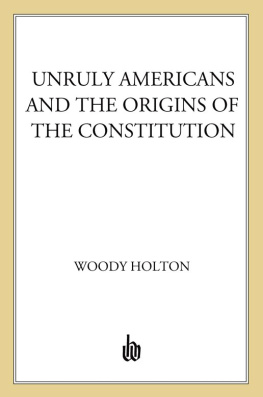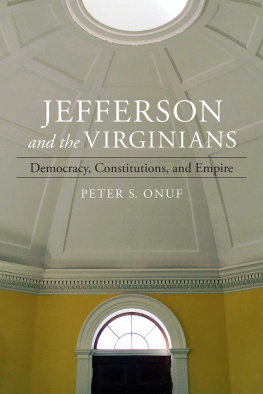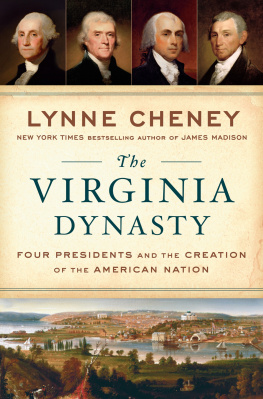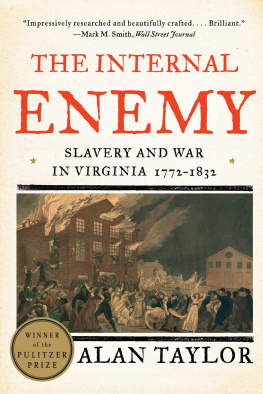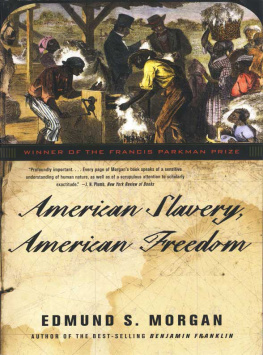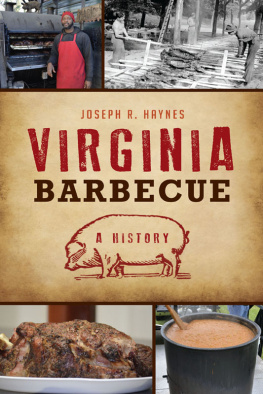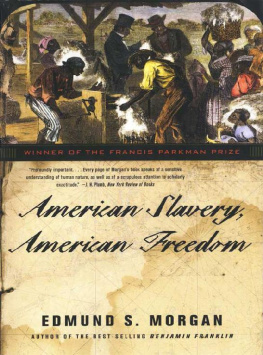The Omohundro Institute of Early American History and Culture is sponsored jointly by the College of William and Mary and the Colonial Williamsburg Foundation. On November 15, 1996, the Institute adopted the present name in honorof a bequest from Malvern H. Omohundro, Jr.
The paper in this book meets the guidelines for permanence and durability of the Committee on Production Guidelines for Book Longevity of the Council on Library Resources.
ACKNOWLEDGMENTS
I want to thank the people that made this book possible.
I am grateful to the staffs of the following institutions for their help in locating and using books and manuscripts in their care: the Special Collections Department of Alderman Library at the University of Virginia, the Alexandria, Virginia, Public Library, the Christ Church Foundation library, Clements Library at the University of Michigan (especially Rob Cox, now of the American Philosophical Society), the Glasgow County Archives, the Historical Society of Pennsylvania, Houghton Library at Harvard University, the Archives Research Room at the Library of Virginia (especially Minor T. Weisiger), the archives department of the Library of Congress (especially Jeffrey M. Flannery), the Maryland Hall of Records, the Massachusetts Historical Society, the New-York Historical Society, the John D. Rockefeller, Jr., Library at Colonial Williamsburg (especially Liz Eckert), the Southern Historical Collection at the University of North Carolina, the archives department of Swem Library at the College of William and Mary, the Virginia Baptist Historical Society, and Virginia county courthouses (Augusta, Bedford, Frederick).
I would like to thank the following individuals and institutions for advancing this project in a variety of ways: the Bloomsburg University History Department, the Boston Public Library interlibrary loan office, the Cambridge, Massachusetts, Public Library interlibrary loan office, Elisabeth and Robert Carter, Dan Clark, Greg Crider, the Duke University History Department (especially for the T. Malcolm Carroll fellowship), Brandee E. Faust, Mary K. Geiter, Susan E. Hurley, Richard F. Neel, Jr., the late Alice C. Rogers, Beverly Sensbach, Werner Sensbach, the Virginia Foundation for the Humanities and Public Policy (for the fellowship and for the useful suggestions of seminar participants), the Virginia Historical Society (for the Mellon fellowships, for the useful suggestions at a Society seminar, and for Frances Pollards unerring guidance), and Mary Ellen Zeisloft.
The following people read portions of the manuscript and offered helpful suggestions, most of which I have used: Suzanne Adelman, David Ammerman, Sara Bearss, Staige D. Blackford, T. H. Breen, Kevin Butterfield, Barbara DeWolfe, Gregory E. Dowd, Richard Durschlag, Emory G. Evans, Paul M. Gaston, John M. Hemphill, Jr., Warren Hofstra, Francis Jennings, Tom Jordan, Staughton Lynd, Turk McCleskey, Michael N. McConnell, James Merrell, Robert Nelson, Michael Lee Nicholls, Evelyn Thomas Nolen, Sanford M. Pooler, Jr., Bruce A. Ragsdale, Julie Richter, Sharon M. Sauder, John E. Selby, Robert Shaposka, W. A. Speck, Sarah Stroud, Alan Taylor, and Anthony F. C. Wallace.
Several groups in addition to some of those already mentioned allowed me to describe certain aspects of the project and then offered useful suggestions: the American History Seminar at Cambridge University, the American Studies Department at the University of Wales, Swansea, the Bloomsburg University Social Studies Club, participants in the National Womens Studies Association Mid-Atlantic Conference (1997), the Roanoke Valley Historical Society, and the Southern History Seminar at the University of Virginia.
A small group of editors made improvements to every chapter of the manuscript. I want to thank Fred Anderson, M. Kathryn Burdette, Edward Countryman, John dEntremont, Lawrence Goodwyn, Lisa D. Hammond, Ronald Hoffman, James Horn, Joseph Jones, Laura Jones, John M. Murrin, an anonymous outside reviewer for the Omohundro Institute of Early American History and Culture, Julius Scott, Brent Tarter, Thad W. Tate, and especially Fredrika J. Teute.
A few people made extraordinary contributions to the book, and I want to express my appreciation to them. Thank you, the Holton family, Marjoleine Kars (whose successful effort to recover the world of the North Carolina Regulators inspired me to try to do the same with various Virginians), Michael A. McDonnell (whose forthcoming book is much more than a sequel to Forced Founders), and Jon F. Sensbach (who is as good a friend as he is a writer). My most enthusiastic thanks go to Peter H. Wood, who put more work into this book than anyone but the author and more wisdom into it than anyone.
CONTENTS
ILLUSTRATIONS
- Figure 1. Conflicting Indian Boundaries of 1768
- Figure 2. Sir William Johnsons Testamonial
- Figure 3. Drawing of a Pipe; A Belt and Strings of Wampum
- Figure 4. Virginia and Its Neighbors, 1776
- Figure 5. John Robinson
- Figure 6. Crime Scene Detail
- Figure 7. Arthur Lee
- Figure 8. The Alternative of Williams-Burg
- Figure 9. Article 4, Continental Association
- Figure 10. Attack on Hampton
- Figure 11. Rumors of Slave Plots in the James River Watershed
- Figure 12. Williamsburg Gunpowder Magazine
- Figure 13. John Murray, Fourth Earl of Dunmore
- Figure 14. A List of Negroes That Went Off to Dunmore
- Figure 15. Landon Carter
ABBREVIATIONS
CWF
- Colonial Williamsburg Foundation library
Duke
- Manuscripts Department, Perkins Library, Duke University, Durham, N.C.
Houghton
- Houghton Library, Harvard University
JHB
- John Pendleton Kennedy, ed., Journal of the House of Burgesses of Virginia... Including the Records of the Committee of Correspondence (Richmond, Va., 19051915)
JNH
JSH
- Journal of Southern History
LC
LVA
- Library of Virginia, Richmond
MHM
- Maryland Historical Magazine
Revolutionary Virginia
- William J. Van Schreeven, Robert L. Scribner, and Brent Tarter, eds., Revolutionary Virginia: The Road to Independence ([Charlottesville, Va.,] 19731983)
SAL
- William Waller Hening, [ed.], The Statutes at Large; Being a Collection of All the Laws of Virginia...


